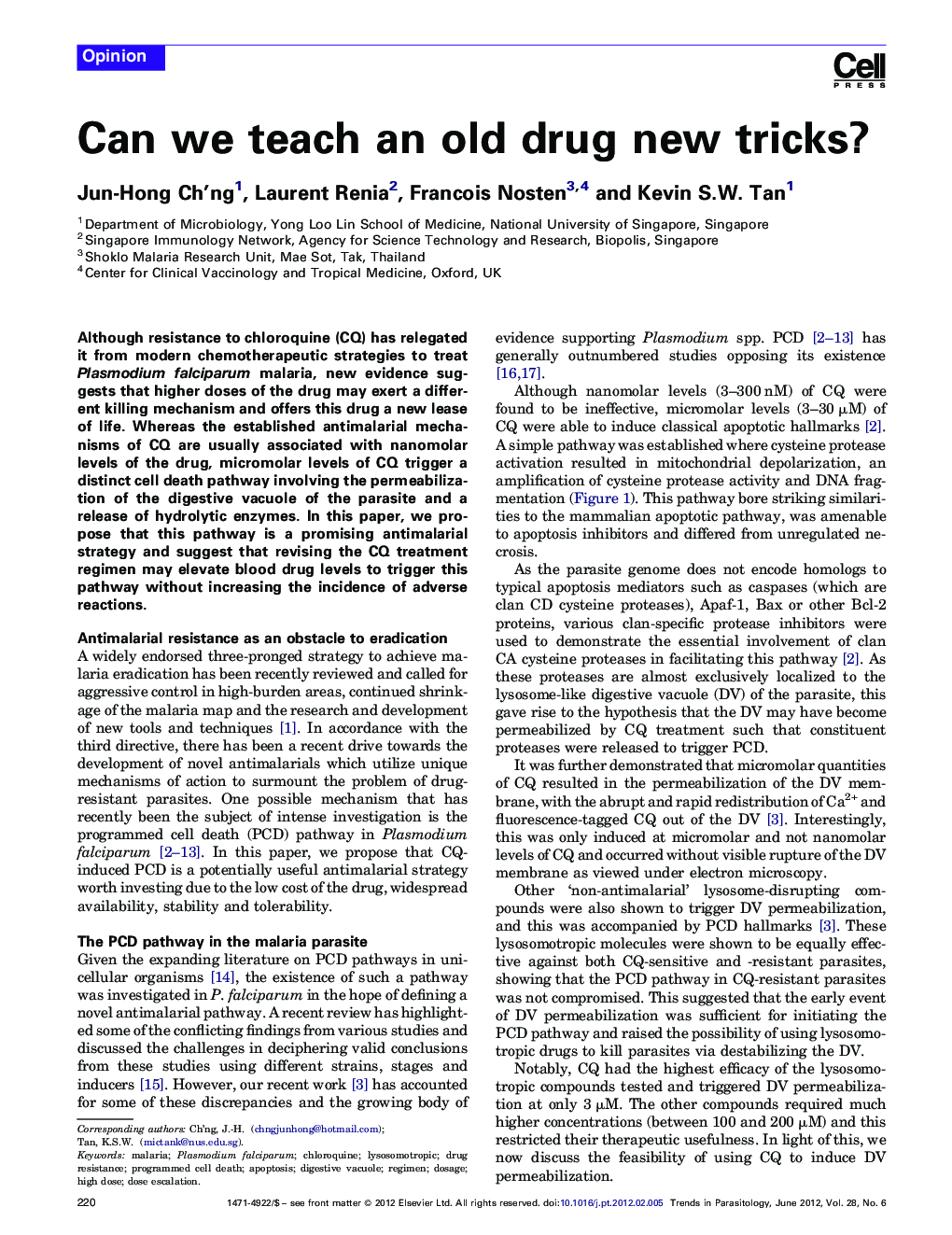| Article ID | Journal | Published Year | Pages | File Type |
|---|---|---|---|---|
| 3423198 | Trends in Parasitology | 2012 | 5 Pages |
Although resistance to chloroquine (CQ) has relegated it from modern chemotherapeutic strategies to treat Plasmodium falciparum malaria, new evidence suggests that higher doses of the drug may exert a different killing mechanism and offers this drug a new lease of life. Whereas the established antimalarial mechanisms of CQ are usually associated with nanomolar levels of the drug, micromolar levels of CQ trigger a distinct cell death pathway involving the permeabilization of the digestive vacuole of the parasite and a release of hydrolytic enzymes. In this paper, we propose that this pathway is a promising antimalarial strategy and suggest that revising the CQ treatment regimen may elevate blood drug levels to trigger this pathway without increasing the incidence of adverse reactions.
